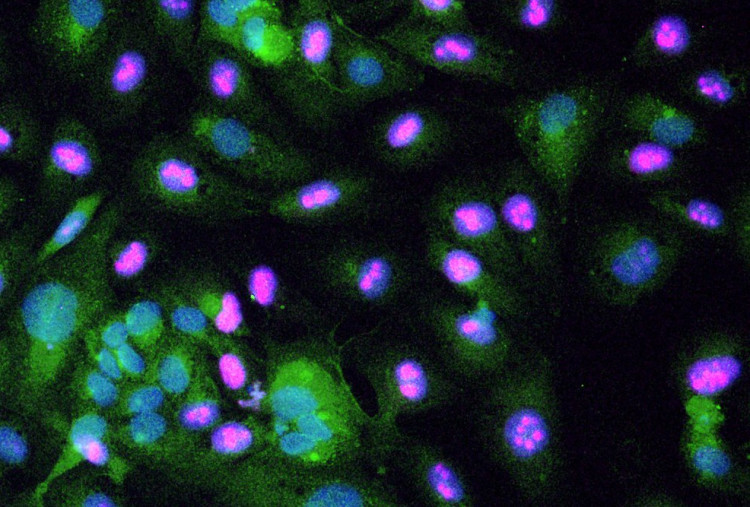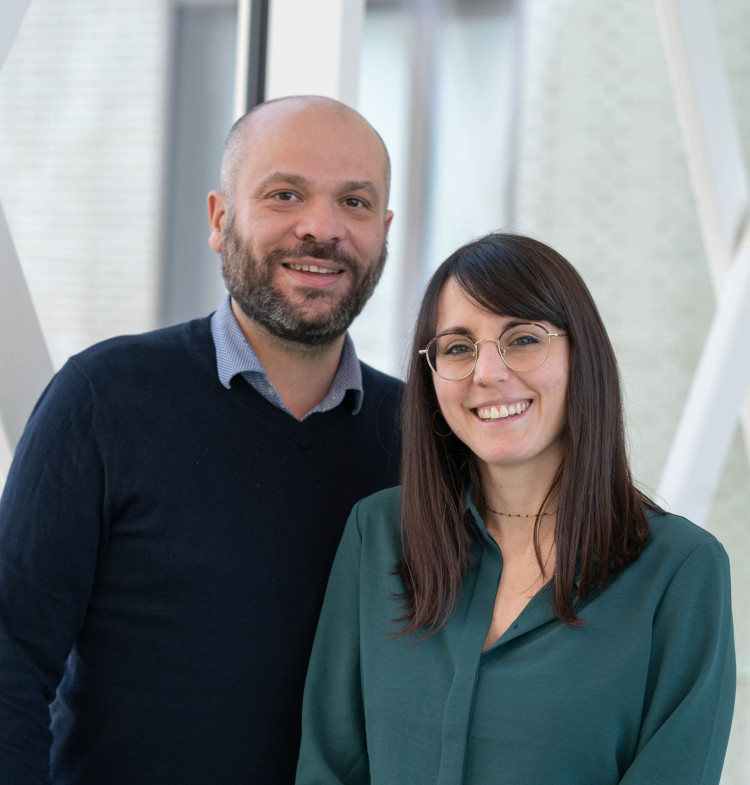Reinforcing endothelial TRAIL protects against cancer metastasis
Researchers from the lab of Prof. Max Mazzone (VIB-KU Leuven Center for Cancer Biology) have discovered that the family of TRAIL proteins in the endothelium plays a role in metastasis. Moreover, researchers demonstrated that counteracting TRAIL receptor DR5 in endothelial cells and promoting exogenous expression of TRAIL via mRNA technology can protect against breast cancer metastasis. The discovery is an important step toward the future development of new therapeutic approaches to prevent cancer metastasis.
Despite numerous successful advances in cancer treatment, specifically localized solid tumors, metastasis remains the Achilles heel of cancer therapy and the leading cause of death in cancer patients. The mechanisms behind metastasis remain a field of great interest for researchers. Endothelial cells (EC) are involved in disseminating cancer cells to the metastatic sites. Although many researchers have focused on angiogenesis and EC interactions at the primary tumor site, the interplay between cancer cells and ECs at the pre-metastatic niche remains elusive.
Prof. Max Mazzone, VIB-KU Leuven Center for Cancer Biology: “What we knew so far was that a protein called TRAIL, which is part of the armamentarium of our immune system, can limit tumor initiation and metastasis. So far, however, no one has been able to leverage the TRAIL family of proteins in the fight against cancer. It was unknown how TRAIL impacted the tumor microenvironment during metastasis. That’s what we tried to find out.”

Expression of TRAIL (green) in proliferating (Ki-67+, magenta) and quiescent (Ki-67-) endothelial cells. Cell nuclei are shown in blue.
On the TRAIL of metastasis
TRAIL – tumor necrosis factor-related apoptosis-inducing ligand – turned out to be more interesting than anticipated. The team discovered that tampering with endothelial TRAIL compromised the integrity of the vascular barrier, promoting inflammatory cell recruitment, and favoring metastatic cell lodging.
Carla Riera Domingo, first author of the study, VIB-KU Leuven Center for Cancer Biology: “To our surprise, we found that adult quiescent endothelial cells expressed unexpectedly high levels of TRAIL and its receptor DR5, allowing them to interact with each other inside the cell. We demonstrated that such interaction is required to block instead of activate DR5 signaling, thereby safeguarding EC survival, reducing EC stickiness, and ultimately ensuring a tight and quiescent barrier. When TRAIL is absent, however, DR5 signaling is unleashed, compromising the integrity of the vascular barrier and ultimately enabling metastasis.”
The team also unraveled two possible mechanisms that could counter the protective function of endothelial TRAIL in the context of cancer dissemination. They found that tumor-derived signals can silence TRAIL, and decoy receptors DcR1 and DcR2 can entrap and inhibit it. This is an important finding as it details how tumors contribute to overruling the protective function of TRAIL and enabling metastasis.

Prof. Max Mazzone (left) and the article’s first author Carla Riera-Domingo (right).
TRAILS of new therapy strategies
Having discovered how TRAIL, or rather the absence of TRAIL, plays an essential role in the dissemination of cancer cells through the vascular barrier, the team set out to find strategies to bypass this mechanism and avoid metastasis. In a preclinical murine model, the team showed that blocking TRAIL receptors or promoting exogenous expression of TRAIL via mRNA delivery by endothelium-targeting lipid nanoparticles can protect against metastasis.
Carla Riera Domingo: “Our experiments confirmed our hypothesis that promoting TRAIL expression in the endothelium could reinforce the vascular barrier and block metastasis. A significant discovery, because it not only furthers our understanding of what enables metastasis in cancer patients, but also prompts the exploration of new strategies to counter the process. In the future, this can lead to better treatment options for cancer patients.”
This research was funded by FWO, ERC, and the VIBTechWatch team.
Publication
Breast tumors interfere with endothelial TRAIL at the pre-metastatic niche to promote cancer cell seeding. Riera-Domingo et al. Science Advances, 2023.
